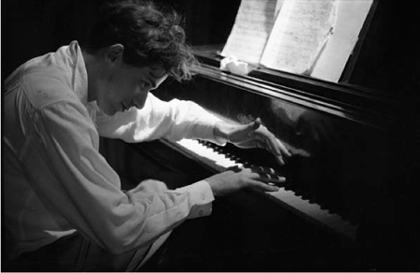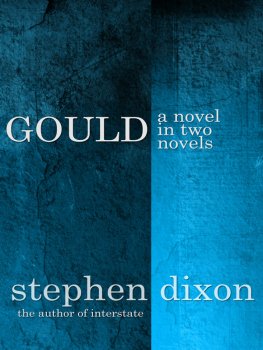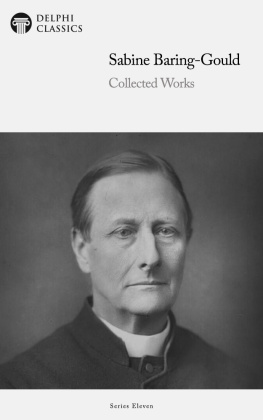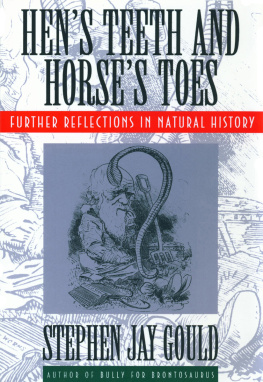Partita for Glenn Gould

Glenn Gould, 1956. Photograph by Jock Carroll
Partita for Glenn Gould
An Inquiry into the Nature of Genius
GEORGES LEROUX
Translated by Donald Winkler

McGill-Queens University Press 2010
ISBN 978-0-7735-3810-8
Legal deposit fourth quarter 2010
Bibliothque nationale du Qubec
Printed in Canada on acid-free paper that is 100% ancient forest free (100% post-consumer recycled), processed chlorine free.
McGill-Queens University Press acknowledges the support of the Canada Council for the Arts for our publishing program. We also acknowledge the financial support of the Government of Canada through the Canada Book Fund for our publishing activities.
Library and Archives Canada Cataloguing in Publication
Leroux, Georges, 1945
Partita for Glenn Gould : an inquiry into the nature of genius /
Georges Leroux; translated by Donald Winkler.
Translation of: Partita pour Glenn Gould (Montral : Presses de lUniversit de Montral, 2007).
Includes bibliographical references and index.
ISBN 978-0-7735-3810-8
1. Gould, Glenn, 19321982. 2. Music--Social aspects. I. Title.
ML417.G69L61813 2010 786.2092 C2010-904823-7
This book was designed and typeset by studio oneonone in Sabon 10/15
Contents
Prludium Overture
Partita no. 1 in B flat Major
I
Toccata Art and a Lifes Shape
Partita no. 6 in E Minor
II
Allemande The Paradoxes of Genius
Partita no. 2 in C Minor
III
Courante The Hands of Gould, the Body of Glenn
Partita no. 3 in A Minor
IV
Air and Sarabande To Read, to Write, to Dream
Partita no. 6 in E Minor
V
Sinfonia The Importance of Being Alone
Partita no. 2 in C Minor
VI
Scherzo Music and a Lifes Shape
Partita no. 3 in A Minor
VII
Gigue On the Road, at the Lakeshore, in the Forest
Partita no. 6 in E Minor
Preface to the English Edition
Since the initial appearance of this book in September 2007, at a time when Glenn Goulds admirers were commemorating the twenty-fifth anniversary of his premature death, our understanding of Goulds life and work has continued to grow. Important new studies and the ongoing publication of his correspondence have enabled us to fill in certain gaps. I have learned much from the recent contributions of scholars and artists who share my interest in Goulds aesthetic. Reflecting on their works, I have modified and refined my approach on a number of points, and have expanded my bibliography to take new developments into account. , Scherzo, in particular, has been reconsidered since the French-language edition appeared.
To say that Gould is an icon of Canadian culture is an understatement. As I have tried to show, the more time I spent with Gould, the more meaningful that expression became for me. It is not simply a question of his environment and the places we associate with him, from his homes in Toronto to the landscapes of Georgian Bay. Even more important are his roots in Canadian thought, from Marshall McLuhan to Jean Le Moyne. But to say this still omits what is most essential: the freedom and generosity that characterize Goulds art and define it as Canadian. And so I am most happy to present my work to an English-speaking public whose appreciation of Gould has always gone hand in hand with a sense of its own cultural birthright.
I would like to reiterate my thanks to Goulds biographer Kevin Bazzana; he lives in British Columbia and I in Quebec, but we have enjoyed a constant dialogue. He had already helped me in the preparation of my essay, and since it first appeared in French he has accompanied me every step of the way. I would also like to thank my translator, Donald Winkler, who has brought both rigour and sensitivity to the work at hand. Crossing from one language to the other is very much a Canadian affair; he accepted the challenge, and I am most grateful to him.
Acknowledgments
When I began writing about Glenn Gould in 1987, I never dreamt that he would remain with me the way he has. But he has never been far from my thoughts, thanks in part to the fact that my admiration for him has always been shared by many others. Several among them deserve my thanks. First, Ghyslaine Guertin, who has contributed so much to our understanding of Goulds art through her untiring work in publishing and translation. The two conferences she organized, in Montreal in 1987 and in Paris in 2003, set the stage for many productive discussions, and she has continued to inspire, both in Quebec and in France, our small community of French-speaking Gouldians. Jean-Jacques Nattiez has long been a keen student of Gould the performer as well as of his aesthetics, and I am particularly grateful to him for our extremely rewarding exchanges. I am indebted also to Pierre Jasmin, artiste engag, for his matchless perspective on Bachs work and the art of the pianist. I have never had the pleasure of meeting Goulds biographer Kevin Bazzana, but my reading of his work led me to contact him, and he proved to be a generous and enthusiastic correspondent. He shared with me his encyclopaedic knowledge of the Gould archives, and provided me with a transcription of difficult passages from Goulds crisis journal. Without the aid and support of Ginette Michaud in preparing the text for this book, I do not think it could ever have seen the light of day. Not only did she correct what needed correcting but she helped me cope with my doubts and concerns. I owe her much. Finally, I would like to name Thierry Hentsch, who passed away on July 7, 2005. His conversation, when it bore on Bachs music and Goulds art, was luminous. I had hoped to make him a gift of these reflections, where he is everywhere to be found.
Partita for Glenn Gould
Prludium
Overture
Partita No. 1, in B flat Major
Solitude is the prerequisite for ecstatic experience, especially the experience most valued by the post-wagnerian artist the condition of heroism. One cant feel oneself heroic without having first been cast off by the world, or perhaps by having done the casting-off oneself.
The Age of Ecstasy, 1974
From almost the very beginning Glenn Goulds art was intimately associated with our perception of his life. Or, to be more precise, our perception of the shape his life took. All who valued his art were impressed not only by the art itself, but also by his commitment as an artist, by his unique brand of asceticism, his ethic. It was not so much the biographical detail that sparked interest in his thinking and his idea of art for what the biography comes down to is a total absorption of the life in the art as the radical nature of his dedication to music. This devotion, from childhood until death, called for a commitment so intense and an asceticism so strict that we must, if we want to understand its nature and innermost dimensions, explore its connection with the art the interpreter bequeathed us.
Over time we have learned more and more about Glenn Gould, and as the accounts and biographies have proliferated we have not tired of what they have to teach us. But in one respect they are all consistent: apart from his crucial decision, in 1964, to abandon the concert stage, there was no dramatic turning point in Goulds life. His entire existence was bound up in the music, which demanded that the artist as a private person disappear, blending into his art. Goulds conversations, the reports of his recording sessions, his relationships with his producers, collaborators, and friends, his ironic exchanges with an eclectic assortment of correspondents, few of them intimates, all paint the same picture: a way of life in which the renunciation of life itself became the necessary condition for art. There is nothing mysterious in this formulation, even if it exposes a paradox that cannot be ignored: to live without living, is that still living? Or is it another kind of life? And who can say what this life is without access to its essential core, where it is rooted in art as a free and sovereign form? Everything suggests that this mode of life was vital to Goulds access to music itself, which perhaps explains our ongoing fascination with it. What constitutes a lifes shape, and what the shape of any life implies in the ethical domain, is a question to which we will return. For now we need only note that Gould himself spoke in these terms.
Next page








